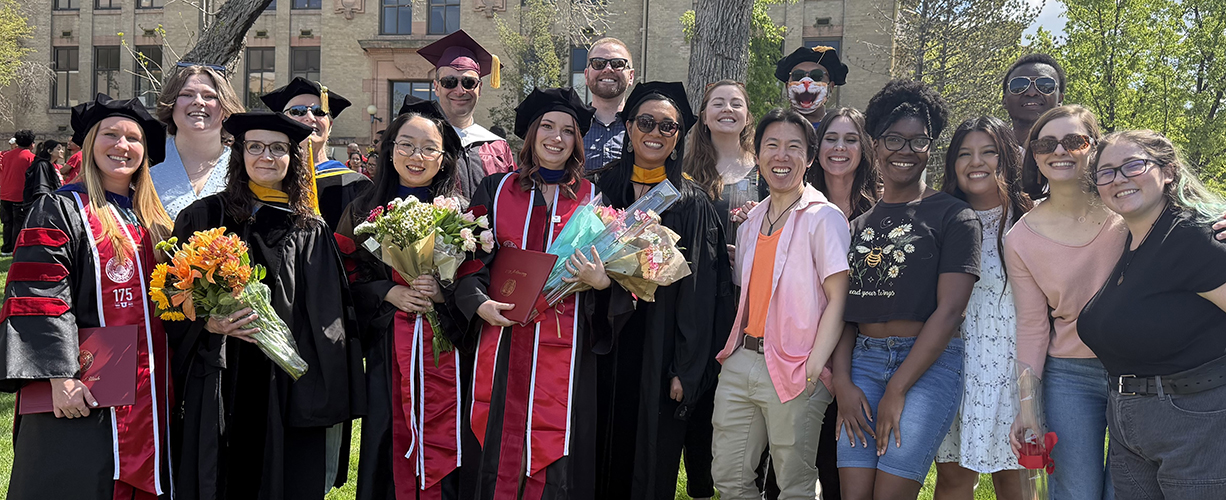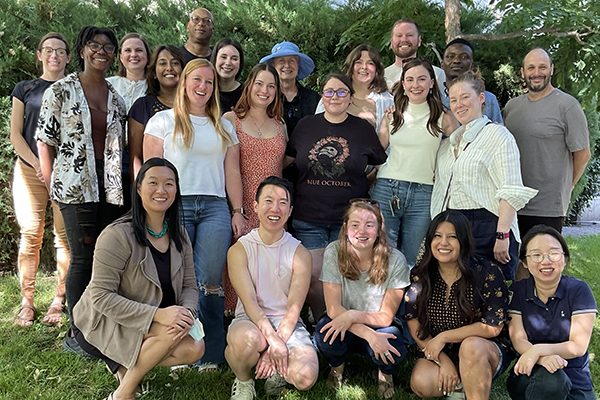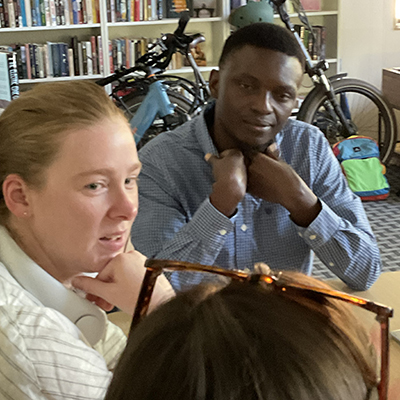Social Psychology Program
Program Overview
 Faculty in the social psychology program are a collegial and interdisciplinary group
whose research focuses on topics such as person perception, social support, persuasion,
decision-making, health cognitions, motivation and quantitative methods. Across these
topics, many faculty emphasize two core themes:
Faculty in the social psychology program are a collegial and interdisciplinary group
whose research focuses on topics such as person perception, social support, persuasion,
decision-making, health cognitions, motivation and quantitative methods. Across these
topics, many faculty emphasize two core themes:
We do not consider these themes to be distinct areas, but rather as critically linked. Our research focuses on connections among these themes within the domains of physical and mental health, judgment and decision-making, and education. Click on the theme links above to learn more.
Strengths of the Program
- A focus on theory-driven research in several important areas of application, such as education, health behaviors, stress physiology and aging, and intergroup relations.
- Advanced training in such methods as social psychophysiology and advanced statistical techniques (e.g., multilevel modeling, structural equation modeling, longitudinal data analysis, systems approaches) necessary to understanding how complex social processes unfold and change over time.
- Students work with both primary and secondary advisors.
- A strong history of both faculty and student collaboration with colleagues from other programs and departments
- A cohesive and collegial program atmosphere, with small advanced classes and a modal student-to-faculty ratio of 2 to 1
Prospective Graduate Students
Competitive applicants to our program have strong records of scholarship and demonstrated interests in generating and applying new knowledge in areas that closely match the scholarship of our faculty (see descriptions and links below). Students who receive their Ph.D.ʼs from our program have gone on to jobs in academia (e.g., UNC-Wilmington; St. Norbert College; Kent State University; BYU) as well as in health and industry (e.g., Adobe) settings.
We employ the mentorship approach in which students typically work closely with one faculty member. However, to facilitate the student's career and to maximize research and professional opportunities, students are also required to complete a project with a second faculty member by the end of the third year. These secondary projects often allow students to integrate their primary and secondary interests and develop their unique focus. Students are also encouraged to participate in collaborative projects with other faculty and students. Faculty collaboration is frequent, and opportunities for students to engage in interdisciplinary research are readily available.
Faculty with Social Psychology Focus

- Lisa Aspinwall, Social Area Coordinator—Research Interests: self-regulation, future-oriented thinking, health cognitions & behaviors
- Kimberly Bowen
- Jonathan Butner - Research Interests: Complexity theory, Dynamical systems, and statistics; how we can understand complicated human behavior as temporal phenomena with stable qualities.
- Jacqueline M. Chen—Research Interests: Experimental social psychology, diversity and intergroup relations, social cognition, social perception, cultural psychology
- Samantha Moore-Berg - Research interests: understanding the drivers and consequences of intergroup conflict (e.g., political polarization, religious conflict, racial discrimination); developing and investigating peacebuilding interventions
- Brenna Gomer - Research interests: missing data analysis, structural equation modeling, robust methods; how we can handle "messy data" statistically and measure human behaviors
- David Sanbonmatsu
- Carol Sansone - Research interests: How do we sustain motivation over time, and what are the additional challenges for individuals from underrepresented backgrounds (e.g., women in STEM)?
- Bert N. Uchino - Research interest: What are the psychosocial and biological pathways linking relationship and stress to disease outcomes?
- Paul H. White - Research Interests: Role of non-message factors in attitudes & persuasion; impact of prejudice and stereotyping on performance; intergroup and intragroup relations; group processes
Current graduate students:





 Competitive applicants to our program have strong records of scholarship and demonstrated
interests in generating and applying new knowledge in areas that closely match the
scholarship of our faculty (see descriptions and links below). Students who receive
their Ph.D.ʼs from our program have gone on to jobs in academia (e.g., UNC-Wilmington;
St. Norbert College; Kent State University; BYU) as well as in health and industry
(e.g., Adobe) settings.
Competitive applicants to our program have strong records of scholarship and demonstrated
interests in generating and applying new knowledge in areas that closely match the
scholarship of our faculty (see descriptions and links below). Students who receive
their Ph.D.ʼs from our program have gone on to jobs in academia (e.g., UNC-Wilmington;
St. Norbert College; Kent State University; BYU) as well as in health and industry
(e.g., Adobe) settings.